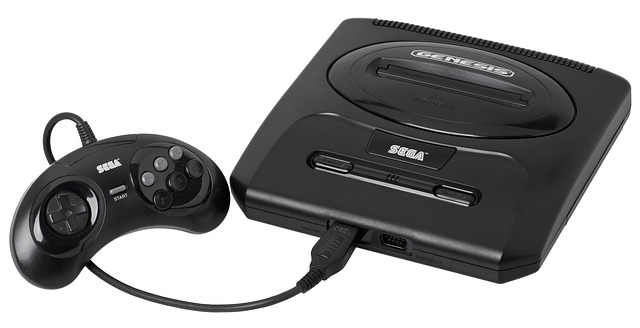Despite the disappointing Resident Evil reboot series on Netflix, the video game film/TV franchise continues to be a Hollywood mainstay and fan favourite.
Lance Reddick is a highly accomplished actor who you might know from his roles as Cedric Daniels on The Wire or Charon the concierge from the John Wick movies. Every actor worth their salt, however, become involved at some point with a project that’s so bad it’s the stuff of legend. For Reddick, the new Netflix series Resident Evil is that project. A reboot of the eponymous franchise that spawned seven live-action films since 2002, to speak nothing of an animated series on the side. And the whole thing began life as a video game for the Playstation in 1996; since then the Japanese gaming franchise became a global sensation and the fandom was big enough for the film series to be greenlit.
In the Netflix show, Reddick is playing a higher-up at Umbrella, the franchise’s villainous super-corporation whose bio-weapons are responsible for unleashing a zombie apocalypse upon the world. In one particularly bad scene—already meme-d to oblivion on Twitter—Reddick’s character Albert is intimidating a junior employee who has just behaved badly with Albert’s daughter. Albert begins smoothly, by explaining that his senior position within Umbrella has meant that he “isn’t much of a father”. It’s the tonality of a reasonable man standing up for his daughter. With little warning, he takes a steep right turn and threatens the junior employee outright; one phone call and you’re fired, he says.
“I don’t want you fired. I want you blacklisted. I want to make it so that no tech firm around these parts would ever hire you. Not Apple, not Google. I want Pornhub to shred your resume.”
That last line is a near-perfect example of the problem with Resident Evil—it’s way too much in love with its own cleverness-by-half. At a different point, Albert says that the zombie virus is “not like Covid” which is….a curious choice of dialogue, one has to say.
The thing is, none of the Resident Evil films that came before this show had particularly memorable dialogue either. And though they could be great fun intermittently, not one of these movies could be said to be well-crafted or interested in telling a tightly-knit, coherent story. What, then, explains their proliferation down the years, beyond the obvious appeal of shoot-’em-up style visuals?
The video game movie industrial complex
Since the mid-90s, really, video game movies have been big in Hollywood. And to those not in the know, an unlikely figure lies at the centre of two of the biggest early examples—the martial artist and actor Jean-Claude Van Damme, who circa 1991 or so had just been introduced to Hollywood audiences in a number of successful action movies.
Back in 1991, however, the idea of playing a video game with your ‘avatar’ or character as a digitised Hollywood star held considerable novelty value, which is why the erstwhile Chicago-based video game company Midway was approached to create a video game version of the Jean-Claude Van Damme movie Universal Soldier (1992), which was still some months away from the theatres.
Comic book artist John Tobias alongside programmer Ed Boon thought that featuring Van Damme as a playable character would be a big hit among fans. Van Damme, a skilled martial arts practitioner nicknamed “the muscles from Brussels,” was known for introducing a more realistic, brutal form of hand-to-hand combat to Hollywood, courtesy films like Bloodsport (1988).
Unfortunately for Midway and the duo, the Van Damme deal never materialised. But Tobias and Boon used the experience to create a new character for the game they ended up developing. The character, Johnny Cage, was a brash, cocky Hollywood martial arts star whose ego often came in the way of his skills — he also shared Van Damme’s initials.
The game that Midway launched eventually, Mortal Kombat (1992), would go on to become one of the most immediately identifiable video game franchises of all time. If you were into one-on-one fighting games in the ’90s and 2000s, you were either Team Streetfighter (intense, precise, all about the craftsmanship) or you were a Mortal Kombat loyalist (cartoonishly violent, gory, all about macabre humour and showmanship). Interestingly, Van Damme would go on to star in the film version of Streetfighter a couple of years later, in 1994.
Mortal Kombat has remained a highly popular franchise all these years later as well, with a reboot movie released last year. And while the storyline was campy to say the least, the action sequences were a lot of fun and delivered the requisite mix of gaming callbacks and buckets of gore for fans.
Since then, of course, there have been a great many video game franchises led by Hollywood A-listers. Angelina Jolie and Alicia Vikander have both played Lara Croft, the protagonist of the Tomb Raider movies. Assassin’s Creed, Warcraft, Prince of Persia et al have all, in recent times, tried to unlock this market with varying degrees of success.
The influence of the gaming industry can be seen in other kinds of movies, too. In the recent Ms. Marvel miniseries, Kamala Khan wonders whether Thor is a secret gamer—a reference to the scenes from Avengers: Endgame where Thor is seen playing video games with his friends Korg and Miek. Last year, Disney scored one of its biggest hits in Free Guy, a film that was set inside of a video game and offered plenty of real-world references (and critiques) of the gaming industry. Interestingly, Taika Waititi who plays Korg in the gaming scenes with Thor, plays a rich, spoilt gaming developer in Free Guy.
Raccoon City and reboot woes
In 2021, the Resident Evil franchise was rebooted with the film Welcome to Raccoon City, directed by Johannes Roberts. The movie had a lot of things going for it, in retrospect, and it may well be received a bit more favourably in the future than it currently is (especially when people watch the Netflix show, which is orders of magnitude worse).
The horror beats in the story are accompanied by moments of absurdity and even farcical comedy at times. This is reflective of the video game series, which has swung, pendulum-like, between gore-heavy, white-knuckle zombie action (as seen in the more recent iterations, like Village earlier this year, or in mid-2000s versions like Resident Evil 4) and a much goofier, fast-paced, almost arcade-like tonality (Resident Evil 6).
What this also means, however, that the film is stuck piling character upon character for much of its (arguably too-long) runtime, while also keeping the zombie-virus threat alive and in the fray constantly. Back-stories are thin all around, predictably, and you might find yourself struggling to root for too many of these characters. Robbie Amell (Upload, The Flash) plays Chris Redfield, the bland super-soldier dispatched to investigate Raccoon City’s Spencer Mansion, the suspected epicenter of the zombie epidemic circa 1998 (did we mention this is an emphatically 90s story?).
Of course, fans of the series will know what’s coming next: the Umbrella Corporation’s greed for power will lead them down the bio-weapons path and that in turn will lead to the creation of Patient Zero in the zombie apocalypse. The fun was always going to be in getting there, and Raccoon City does have a few amusing running gags and sideshows.
One that I enjoyed in particular was the role played by 90s tech. Chris’s sister Claire and her conspiracy theory-loving buddies discuss Umbrella affairs on chat rooms (of course, a similar gag is used in the recent Godzilla vs Kong movie, too, if you remember). The way this arc is handled is both slapstick and a deadly serious allusion to more contemporary systems of disinformation. On another occasion, we see a fleeting glimpse of a secondary character playing Snake on his phone. In general, glitch-y tech causes moments of confusion, panic and occasional levity. This is an inspired choice for many reasons but the most obvious connection is paranoia—the paranoia of a less tech-heavy generation when confronted with the vagaries of the government-corporate surveillance nexus.
This is by no means a flawless film and yet, compared to the Resident Evil Netflix series, it comes across as a masterpiece. Much like some other I.P. adaptations from the Netflix stable have gone of late (we’re looking at you, Cowboy Bebop and Persuasion), the backlash from fans has been seismic. And yet, we know that the series will inevitably be greenlit for a second season. Because for the last three decades or thereabouts, Hollywood box office results have proven that the video game movie is going strong, with no signs of slowing down.
Aditya Mani Jha is a Delhi-based independent writer and journalist, currently working on a book of essays on Indian comics and graphic novels.
Read all the Latest News, Trending News, Cricket News, Bollywood News, India News and Entertainment News here. Follow us on Facebook, Twitter and Instagram.



